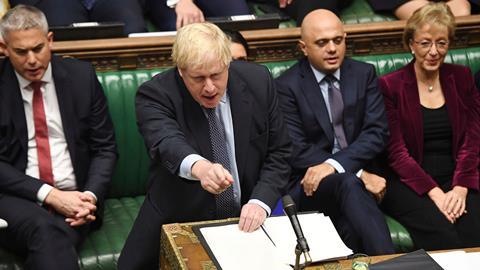How does the PM’s recent deal with the EU shape up from the point of view of solicitors’ interests?

As we know, nearly all of the text of both the Withdrawal Agreement and the Political Declaration is the same as that negotiated by the previous government. But if this is the deal that succeeds, there are consequence for our profession.
The changes do not arise from the new Withdrawal Agreement. The only substantial changes there come from the Revised Protocol on Ireland/Northern Ireland. Most of that is concerned with goods entering or leaving another jurisdiction, and so does not concern us.
Therefore, the conclusions previously drawn about the Withdrawal Agreement still stand for our profession (see tinyurl.com/yyjllgsr). Only those solicitors who have already acquired another EU title for the purpose of establishment in another member state by Brexit day, under either of the two directives mentioned in the agreement (2005/36/EC and 98/5/EC), will be granted rights. And those rights will be restricted to the host state whose lawyer’s title they have obtained through one of the available directives. They will have no right to cross other borders with their title. (If applications have been made under either directive before Brexit day, they will be grandfathered.)
There are important categories of solicitors who will therefore miss out. First, lawyers who practise elsewhere in the EU under their home title – for instance, as an English solicitor in Paris, rather than as a French avocat there – have no rights under this agreement after Brexit. Nor does any solicitor based in the UK who wishes to offer temporary services across borders into the EU.
Such an agreement should replicate the Lawyers’ Directives, as other models are unlikely to deliver the comprehensive practice rights that have substantially contributed to the UK legal sector’s large export surplus
But the changes in the new Political Declaration have consequences for us. Both versions of the declaration want ‘an ambitious, broad, deep and flexible partnership’. But whereas the Theresa May version did not clarify exactly what kind of future agreement the UK government would opt for, this government has come down firmly in favour of ‘a comprehensive and balanced Free Trade Agreement’.
During the summer, when the previous declaration was still on offer, the Law Society published a paper examining how the various possible future arrangements would affect our profession (click here).
Its opening sentence called ‘on the UK government to seek to negotiate a future agreement with the EU that contains provisions allowing English and Welsh solicitors to maintain their right to practise in the EU. Such an agreement should replicate the Lawyers’ Directives, as other models are unlikely to deliver the comprehensive practice rights that have substantially contributed to the UK legal sector’s large export surplus (£4.4bn as of 2017)’.
The only model that the Society foresaw for such an outcome was an association agreement with the EU, similar to those which have been agreed with the countries in the European Economic Area (Norway, Iceland, Liechtenstein) or Switzerland. That would have protected our practice rights and our invisible exports. However, once this government came to office, it was clear that this would not be the route chosen.
Instead, a free trade agreement (FTA) has been selected. The Law Society’s paper has a section headed ‘Why an FTA model is not ambitious enough’. The paper says that an FTA ‘would be a long way off delivering the framework required for the optimal performance of the UK legal services sector, and more importantly its clients and the justice system. Historically, FTAs have not delivered substantial legal services market opening in the EU’. One of the reasons for this is the Most Favoured Nation rule under GATS (preferential treatment afforded by the EU to us has to be extended to its other existing FTAs, which is a disincentive to doing so).
The paper lists seven current rights which would likely be lost under a future FTA, including:
- the unrestricted right to provide cross-border services;
- recognition of practice vehicles and legal forms, such as limited liability partnerships; and
- the protection of lawyer-client communications at EU level when in private practice.
Indeed, the Law Society concludes that an FTA outcome risks being a de facto no-deal for legal services, and that in many respects the ability to provide legal services would fall back on international rules governing trade in services such as the GATS. In other words, solicitors would effectively be trading under WTO rules within the EU (there is, inevitably, also a heading in the paper called ‘Why WTO GATS does not deliver on legal services’).
We know that Brexit is a highly divisive issue. But looked at from the interests of our profession alone, the new Political Declaration is a deterioration in our future rights of practice in 27 countries.
Jonathan Goldsmith is Law Society Council member for EU matters and a former secretary general of the Council of Bars and Law Societies of Europe. All views expressed are personal and do not necessarily reflect the views of the Law Society Council
































No comments yet